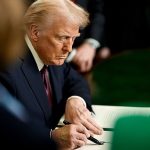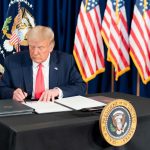In a striking turn of events, it appears that key figures from the Trump administration have taken a keen interest in the ongoing political drama in Ukraine. The audacious plot involves discussions with Ukrainian opposition leaders about potentially unseating President Volodymyr Zelensky. This news, far from shocking to anyone acquainted with the often turbulent geopolitical landscape, highlights the constant maneuvering that accompanies international relations and the chess game of leadership.
The meeting included high-profile individuals such as Yulia Tymoshenko, a former prime minister known for her relentless ambition, along with members from the party of Petro Poroshenko, Zelensky’s predecessor. Reports suggest that Republican foreign policy experts and Ukrainian parliamentarians are privy to these discussions, raising eyebrows about the intentions of these Trump allies. The conversations revolved around the possibility of organizing rapid presidential elections in Ukraine, a nation currently constrained by martial law. Critics warn that such elections could create chaos and unwittingly align with foreign adversary interests, particularly Russia, given that many potential voters are either on the front lines or displaced as refugees.
Murmurs from the political grapevine point to retired General Keith Kellogg as a likely participant in these clandestine discussions. With the four-man team reportedly led by Secretary of State Marco Rubio and also involving National Security Advisor Mike Waltz, speculation continues to swirl about the outcomes of such high-stakes talks. While their ultimate goal remains murky, the implication is clear: the Trump administration is prepared to act if they believe Zelensky cannot or will not negotiate a peace deal with Russia, thereby possibly forfeiting his position.
Amid this backdrop, House Speaker Mike Johnson has voiced that it’s on the Ukrainians to adjust their leadership dynamics to facilitate negotiations. This statement, made shortly after Zelensky faced public criticism, underscores the pressure being applied from within U.S. political circles. An interesting dynamic is shaping up as both government insiders and legions of conservatives back home are eager to see a leader in Ukraine who aligns closely with American interests.
REPORT: Trump Advisers in Talks With Ukrainian Opposition to Remove President Zelenskyhttps://t.co/EfyE2TErve
— RedState (@RedState) March 7, 2025
Yet, while conservatives rally for a change, the reality on the ground is much more complex. While some argue that Zelensky’s approval ratings are plummeting, many surveys indicate he remains popular among Ukrainians, with support for his wartime leadership relatively high. The prospect of replacing him with someone like retired General Valery Zaluzhny, who lacks the widespread favor of Zelensky, poses a significant risk. Such a move could create a power vacuum and might embolden Russia further.
As the political landscape in Ukraine continues to evolve, the strategies being employed by Trump’s allies demonstrate a classic case of “the more things change, the more they stay the same.” The tug-of-war for influence in a war-torn country underlines the complexities of foreign intervention and the specter of diplomacy in the age of Twitter and talk shows. The coming months are sure to reveal whether these gambits will translate into meaningful results or merely serve as the latest chapter in the ongoing saga of international politics.




